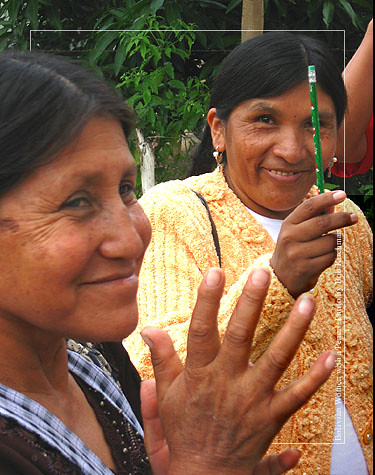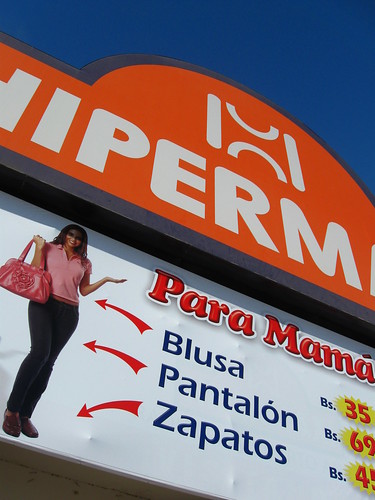
Volume VII, Issue IX
A Case for Vision VI
© 2014 The Kirchman Studio.
When William Wilberforce had ended the slave trade in the British Empire, he had thrown the city of Bristol into economic depression. The port there was heavily devoted to that wretched business and suffered heavily when it was brought to a sudden halt. The unintended consequence had been a rise in children condemned to a life of poverty. Ending the vile business of enslaving Africa's children had resulting in England's society spurning the needs of her own. Men like Charles Dickens and George Müller had seen the wretched street urchins most people despised as jewels to be polished. Müller, relying solely on Divine provision, built five large houses for Orphans at Ashley Downs in Bristol, England. He trained the girls to be nurses, teachers, clerical workers and domestics. He apprenticed all the boys in various trades. He was excoriated for training these unwanted children "above their station." He ignored the critics.
What is often forgotten in the telling of this story is the means by which G-d provided. In 1831, 24 year old Isambard Kingdom Brunel was awarded a contract to bridge the Avon Gorge. It was the dream of a prosperous wine merchant who provided the initial funding. The completed bridge would become the symbol of the city, but lack of funding dogged the project. It took thirty years to complete it. For years only the towers stood completed. In 1833 Brunel began work on the Great Western Railway, which would become the instrument of Bristol's economic revitalization. The nicknames: "Great Way Round" and "G-d's Wonderful Railway" seem to describe well Brunel's great work. Brunel's vision extended beyond the shores of England. He envisioned the creation of a highway of commerce all the way to the Americas! Harnessing the power of steam, he built the great ships to make hs vision a reality. Muller's prayer for provision found answer in the accomplishment of Brunel's vision!
America today is in sore want of leadership like that of Brunel. When a White House spokesman spins the tale that a shrinking employment is a good thing he is delusional. One needs only to look at those countries where this low employment is actually the case to see the madness of such thinking. Visiting Santa Cruz, Bolivia, I am struck with the contrasts. Indeed you can go into the Hipermaxi (a store that resembles a Super Wal Mart) and buy a wide variety of products. Within the inner rings of the great city there are indeed a variety market based businesses. You can stop in at the Hotel Cortez and enjoy a scrumptious buffet (in the company of the city's drug dealers); But travel a few rings out, and the world changes. Here there is little commerce, save a few small markets and ladies selling food on the street. You've just traveled from where the income is measured in thousands of Bolivianos to where it is measured in Hundreds. The plan is laid out for large avenues, but the paving abruptly ends. There is no water and sewer, only an open canal of sorts down the avenue. The smell is overpowering at times.
Turning off of a roughly poured concrete avenue, one finds oneself on a street of mud. It takes some skillful driving to avoid being mired. Here one sees the result of limited resources in a Socialist state. The reason we are here is because years ago, an RN from Charlottesville, Virginia saw the lack of care in government hospitals and started her own. We are working on a house for her head nurse. The compound where we are working is in the outer rings of the city. There is electricity (wire is fairly cheap to string), but the compound had to be provided with its own clean well and septic system. There is a water plant in Santa Cruz, its architecture suggests that it was been constructed in the late 'sixties and its perimiter is heavily guarded by men in riot gear. The plant only appears to provide service within the inner rings. Wherever we go in the city, we follow the good travel advice to avoid the water. We use a lot of hand sanitizer. In spite of all precautions, I still become violently ill. Such is the state of a part of the world 'freed' from meaningful commerce! If one thinks the world will be cleaner for the elimination of industry, one only needs to look at parts of the world where there is little and take heed. Land around the city is often cleared by burning it off, resulting in an acrid smoke that hangs over the area. The best cure for Marxist/Socialist Gaian thinkers in the developed world might just be for them to live in the outer rings of the society their philosophies have actually created. Sadly, such societies tend to create their own elite, safely within the rings closest to the Hipermaxi. That is where the Elite Socialists of our own country tend to gather. There is a market, of sorts, that exists because THEY have money and wants, but the resources for caring for the vast population are stretched woefully thin. Doctors in state hospitals are paid by the government, but drugs are expensive and patients must pay for them. A poor family may obtain surgery for their child but the poor child will have no pain medication.
My RN friend initially gathered donated medications and equipment to send to the state childrens' hospital. She was shocked to find that hospital staff were charging patients for it anyway. Those with money in such a society avoid the government hospitals like the plague, and seek care at private institutions. My friend was able to purchase a hospital from one such practice and turned it into Mission of Hope Bolivia, which provides compassionate care to Santa Cruz's poorest. Outside of Santa Cruz, one sees the true plight of 'minorities' when they are not a voting block to be bought. People of Inca ancestory often live in the deepest poverty and my friend has started another clinic in the city of Sucre especially to care for them. On Sunday, we visit a small church in the outermost part of the city. I am struck by the beauty of the worship offered by the poorest of the poor. Here in the midst of such a bleak landscape, the ministry of the Gospel creates an oasis of hope.
Much closer to the United States, one has only to look at Cuba and Haiti to see the results of the 'freedom' created by lack of industry. Haiti's mountainsides have been stripped of vegetation by people living on the edge of subsistence. Michael Moore may think Cuba has the best healthcare system in the world, but I would have to ask him why it is that children there are going blind for lack of simple basic nutriition? Next week THYME will look at the promise and potential of America and suggest a vision for her renewal and her future. We will look at the amazing technological advances and robust agriculture of a small nation the size of New Jersey. Taking our cue from Wayne Grudem and Barry Asmus In their book The Poverty of Nations [click to read], we will paint a vision for an American Civilization revitalized by the principles they have laid out for us. (to be Continued).

It feels a bit like a Super Walmart, but it has a personality that is uniquely Bolivian.

A dancer moves with the music to add visual richness to worship. The church is in Santa Cruz's poorest neighborhood.
See more at Bob's Bolivia Journal [click to read].




No comments:
Post a Comment